If you click on a link and make a purchase we may receive a small commission. Read our editorial policy.
"This is the dream; this is the astronaut job": David Pepose talks the critic-to-creator pipeline at NYCC 2022
"I either need to walk away or I need to change my relationship with products"

Somewhere between the creation of comics and the creation of talk surrounding comics lies the magical, mystical sort of person who can manage to do both. Among the latest multi-talented people to find themselves on the whirlwind pipeline between comics criticism and comics creation is David Pepose – writer, editor, journalist, and all around creative polymath behind the scripts of Spencer & Locke, and currently Marvel Comics’ run of Savage Avengers. To see how he manages to connect the dots between talking about comics versus making them, Popverse took some time to chat with him at New York Comic Con!
This is going to be weird isn’t it? I hope it’s not too weird. I mean, you know the other end of how this song and dance goes! I remember reading plenty of your bylines not all too long ago.
[laughs] Thank you!
But now you’re here with your own sign! It’s a sign with your name on it here in Artist Alley! How crazy is that for you?
Man, my journey was a zigzag. Anybody who says that they come to it linearly? I'm so jealous of them. My origin story in comics was very weird and a very long time coming. I'm a third generation comics fan. My mother was a comics reader. My grandfather was a comics reader. One of the sad family stories we always say is that my grandfather passed before I was old enough to read. And my grandmother, not knowing what they were worth, threw all of his old comics out. I could have gone to college on those!
No kidding!
So I got my start as a DC Comics intern in the height of the last recession. It was during Batman R.I.P And Final Crisis. At the time, when I went into that internship, the economy was okay. By the time my internship ended, there were no jobs anywhere. I wound up connecting with Janelle Asselin, who had just started in the Batman office, and she was a Newsarama alum. A lot of people got their start in comics by working in comics journalism. There's the Wizard pipeline, the Newsarama pipeline, the CBR Pipeline; and it's not anything particularly formal, at least in the way that I've experienced it, or maybe it was a little bit more like the Wizard era.
That’s some back-in-the-day pipeline stuff.
Yeah, back in the day. But people were talking about comics journalism, making your own comics, and I didn't really know what I wanted. I thought I wanted to be an editor for a while. Now I realize they are unsung heroes who do a really hard job that I don't think I could do day in and day out. But I was in Newsarama for a long time. I loved being part of this industry. That was the way that I got to be a part [of the industry], I got to start conversations. I'm sure you feel that way, too, when conducting interviews. There's the art itself, but then there's the conversation around the art and there are different ways that you can interact with it and different ways you can interpret it. I didn't realize at the time that it was almost like me bootstrapping myself to start writing.
I grew up in the Midwest, St. Louis, Missouri. I didn't really have any creative role models, so to speak. I thought creative jobs were for other people, which is part of why I thought I was going to be an editor, because it was an office structure. I was working day jobs; I was a newspaper reporter for a while. I worked at CBS for a while. But I loved comics and working in comics journalism was my creative outlet. I don't know if you've ever felt this way, but for me it comes in waves. There are times where I'm loving everything I'm reading and then times where I'm kind of hanging on by the fingernails.
Oh totally. There’s just weeks where you can’t keep up even with yourself.
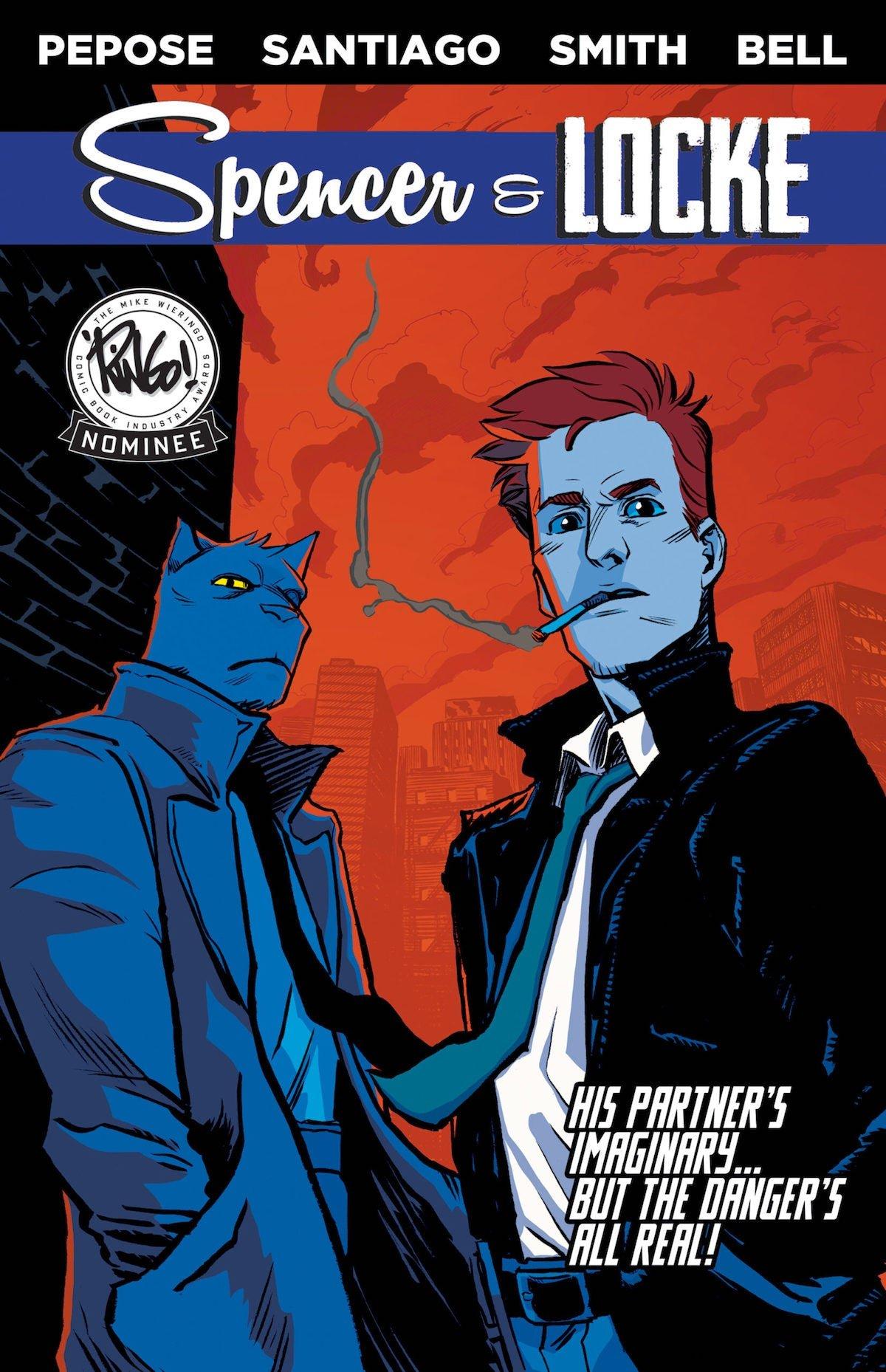
Exactly. You’re the kid in the candy store, but half the candy is rancid. And for me, I hit almost like a crisis of faith where there were very few books that I was connecting with at that moment, and I said, 'Well, I have to make a choice. I either need to walk away or I need to change my relationship with products.' That was around the time Afterlife with Archie came out.
That was really illuminating for me. I loved what they did with it. You can see the Afterlife with Archie influence in a lot of my work because I loved the way that they were able to bend the genre. I didn't expect a whole lot out of it; I didn't expect that Archie Comics could read like that.
So I thought, 'Oh, well, if it can read like that, what about Marvel? What about DC? What about every other comic out there?' And so I started trying it and I wrote the first issue of Spencer & Locke, not thinking it would be anything. I really enjoyed the process and so I was like, 'Let me write the outlines.' Miraculously it came out very quickly –which has never happened since– and I was like, 'That was fun. Let me try to find an artist just to see how it goes!'/p>
I hooked up with George Santiago Jr. who is an amazing, talented, gifted, lovely artist and wonderful human being. We put a pitch together and I was like, 'You know what? Let me just go through the process of shopping it around just to see how it feels'. Then, I pitched it to Action [Lab] and I got an email in 20 minutes, which has also never happened since. [laughs]
I remember it was after hours of my day job, and I was polishing up the treatment and I hit send. I was catching up on a paper, and then 20 minutes later I got a response that just said, "How soon can you get this book done?" Honestly I felt a chill run down my spine. And it was one of those things. I don't know. I've tried all the stable jobs, and I don't think I was very good at them. This is the first job that I feel like I could be good at. That's the thing that really keeps me going is that I love it. My father once asked me, "What's a job that only you could do?" And I'm certainly not the only person who can write, but I'm the only person who can write the way that I write.
So how does having that kind of background – doing corporate for CBS, doing comics journalism, writing for a paper – help you in things like this? Or rather DOES it help you in writing comics as well? If I’m being honest, this is just for my own curiosity. Like what's the big secret to switching your brain into doing something that's fictional and more fantastic rather than writing factually about something fictional?
For me journalism is special. I thought journalism would be a steady job.
That’s a good joke.
[laughs] Right? It helps not to be afraid of word count anymore. You're not afraid of a blank page, you're not afraid of a deadline. For me, especially working in a newspaper, I learned to write modularly, and that really helps me out in terms of constructing my scripts. I'll have an idea for a scene that I really like, but I'm like, 'Oh, it's too soon,' or 'It's coming too late.' And so I kind of lop off the beginning, I lop off the end, and I figure out where to restructure. So I very much see it as, 'How do I shift a paragraph from a news article?' Actually, I see it almost exactly the same way. That's how my brain treats it.
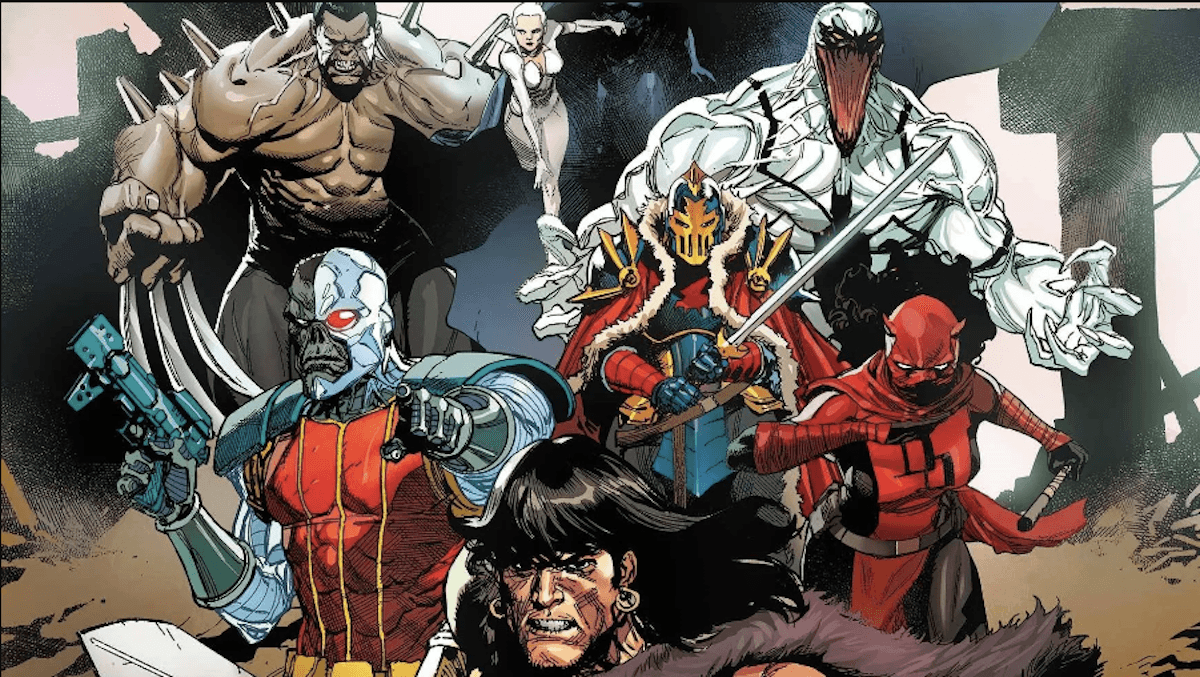
As far as how do I make the jump to fiction? I don't know. Obviously I've been really well steeped in these universes for so long. But also I just saw fiction as an aspiration – just to have the ability to do it. I think that's why so often so many of my pitches are like 'Oh, what if Calvin and Hobbes grew up in Sin City?'
I don't say those to be glib, but I say it as it's the chocolate and the peanut butter. How do you get the best of those two influences and try to honor them in the work? It's a process. So much of it for me feels like going into a messy bedroom with the lights on, and on one side you've got a pile of dirty clothes and then another side you've got a bunch of Legos, and you're blindly trying to feel out where you're at. And if you're like, 'Oh that kind of hurts a little bit,' you're like, 'That's probably a Lego, I'm going to kind of ease back from that.' You're slowly making your way towards the bed. That's how I view it. I know there's a good story in there somewhere. How do you chisel it out?
That’s not unlike journalism then, sure. You go and find the story in similar ways.
Exactly. But I don't know. I feel like the cool thing about journalism that really stuck with me, it's the curiosity of it all, it's the discovery, and the exploration to me is almost more fun than the final destination. When I did Newsarama, something that was really helpful for me, I did a series of process interviews, and I interviewed people like Greg Pak and Rich Remender. And Greg especially, really, he told me something that made so much sense, and maybe it will make sense for you too. He said when he started writing, he gave himself permission to suck.
The first time I tried writing, it was during my newspaper days. I worked the night shift, I was doing the cops in courts beat, so I was calling all the police stations every night being like, 'Hey, did anything happen?' But in the mornings I was doing Newsarama and was feeling so restless creatively that I said that for 90 days I was going to write a short comic script, and I don't care how bad they are as long as I get [it] finished.
By the time I was done with 90 days, I was like, 'Okay.' There are some people who are very confident going into everything. For me, I feel like sometimes I feel like I have to re-teach myself to write every single project because they all have their different voices and a different tone and a different angles. Are you going to use captions? Is there going to be a narrator or not? Or for something like Savage Avengers, are we going to try a third person narration? I don't know. Ask me again in another year, and maybe I'll have a better answer for you. [laughs]
Fair enough. But by now you've done stuff with Action Lab, you've done stuff with AfterShock, a little bit of Fantastic Four, and now you're doing Savage Avengers with Marvel. You've dabbled a little bit all over the place at this point. How does coming from doing comics criticism bust open new doors as far as seeing the behind the scenes and how these publishers work?
That's a great question because the thing that I loved about comics criticism was how it helped me figure out my aesthetic and hone my voice a little bit. It's easy to pick up a book and be like, 'I don't like it.' But you have to figure out, well why don't you like it? You have to articulate it.
Yeah. It’s a very different thing to have to explain what does or doesn’t work on a subjective level.
Yeah, like you can make it about the work and not about the person, unless the person is a reprehensible human being, of course. But otherwise, you have to remember they're human beings at the other side of this book and knowing that everybody who tries to make a comic, nobody sets out to do it badly.
It’s important to – if you have to do a bad review of something – remember that it should be worth it emotionally?
Yeah. Like, the thing that blew my mind is how little I knew. I feel like I did comics criticism for 12 years and I think Spencer & Locke was around year seven or eight. Those seven or eight years, plus being a DC intern, was just enough to barely get me across the finish line for Spencer & Locke. There's so much about the industry that's so counterintuitive from the outside, but when you're on the other side of it, you're kind of like, 'Oh, I see the structures that make it as such.' Some of those structures you work really hard to try to correct, and then some of them you realize, 'Okay, I see how this makes sense or you maybe a necessary evil at best.'
That's been a process for me especially, I was in the INDIE indie trenches at Action Labs, so I guess really the last two years it's sort of been a different level where I'm learning new things and meeting new creators who are showing me the ropes of how the business works. I always say your mileage may vary though.
It's definitely been an interesting process being on the other side of it. And there are times where I'll say, for example, the biggest sin that I ever had as a critic, and it's one that I try to pay that karma back every time I meet a creator, especially one who I've reviewed their book because I just didn't know any better. I'd write a review, and I'd say something about how I hoped the next issue they’d correct something, which is ridiculous because by the time that review comes out, that next issue I’m talking about was written a WHILE ago. Like that next issue is done. The issue after that is done, and I wouldn't have known that going in, and this is coming from somebody who had a decent amount of background in this. And so that's why I also try to be compassionate with people: comics journalism as you know, is built on spit and duct tape and goodwill and passion.
So you started out with Spencer & Locke and played around with this idea that you came up with and now you're doing some proper IP. Has that been intimidating for you?

Yeah, for sure. I'll never forget. My first Marvel work was Savage Avengers. I've been in contact with Tom Breevort since my first book came out. I'd emailed a lot of editors across the industry every time I had a new book out. But Tom always responded. I mean, to mix my company metaphors a little bit, he's Superman. I mean that guy is on top of everything. He's a Jedi master. I will work with him for as long as he'll have me.
And he would give me a little critique here and there and say things like, 'You've done a lot of reviews, you might have made a few people mad. Just be aware that good enough is not going to be good enough for you.' And I actually took that as a compliment. He was right. I felt that way about my reviews. I feel that way about my work. And so three or six months later I get an email from Tom. 'We have a project that we think you might be a good fit for, but you have to fill out the form that's basically, if we're working on a similar idea, you can't sue us.'
I was really excited. My first Marvel backup, my first Marvel one shot. I fill out the paperwork and they send me an email and they're like, 'So we're looking at rebooting Savage Avengers.' And I remember this feeling of my soul leaving my body of just like, 'Oh my God.' It felt like getting called to the Yankees or the Red Sox or the Cardinals or whatever major league team of your choosing. I got really lucky with this in that I had a Conan pitch that was very similar to this that I had worked on a while back before Marvel got the rights.
I had written up a draft outline for Conan versus the Terminator thinking that I would pitch that to Dark Horse. And literally the week I finished that outline, Marvel announced that they picked up the rights to Conan. And I was like, 'That's a bummer. I guess I'm never going to work on that.' And so when they emailed me, I said, 'How would you feel about Conan versus the Terminator, but with a Deathlok?'-- who is one of my favorite Marvel characters, from the moment I have been emailing Tom not knowing at the time that Tom was one of the original editors on DeathLok, I was like, 'I'd love to pitch you a Deathlok thing.'
It was really fun to write. I mean it's really intimidating, and it's one of those things that you just have to remind yourself of, but this is the dream; this is the astronaut job. I try to bring that to it every time I get nervous. I like to say I've had stressful days, I've never had a bad day on this job, and even the hard days, it sure beats honest work. But I can tell you, Fantastic Four in particular, was very intimidating.
That's a lot of history to follow.
It's so much history, but also following up Dan Slott! I mean I've known Dan since my DC intern days. He taught a course at Comics Experience live in New York back when I was interning and [that] was right before he took over Mighty Avengers. And so I was in that class, and Dan taught me how to do characterization. I owe him a lot. And I didn't even know Ryan North was taking over while he was writing it, but I knew there was a new creative team coming and being in the middle of that narrative sandwich between Dan and Ryan, it's a lot.
The way that I treat it and the way I treat every book is that there are going to be writers who are better than me…especially at this stage in my career. There's no question. But if I can know that I left it all out of the field, that I went to 110% on this, I can at least sleep knowing that I did that much. I can look back and at least feel proud knowing what I can learn from it, but still knowing I didn't cut any corners, I left no stone unturned and that's really just what I'm trying to do on every single project.
That's a good way to handle it, I think. That's probably going to keep you doing this for quite a long time.
Knock on wood!
Throughout all of New York Comic Con 2022, Popverse is going to be keeping up with everything that happens, from panels and breaking news to interviews and the best cosplay on the show floor. We’ll be sharing everything as it happens — including exclusive livestreams from the biggest panels at the show — so let us keep you in the loop all weekend.
If you’ve enjoyed this coverage, please give Popverse a shoutout by tagging us on @PopverseSays on Twitter, Instagram, or Facebook, or linking to us at www.thepopverse.com.
About New York Comic Con 2022
Dates
-
Location
New York City
USA
Follow Popverse for upcoming event coverage and news
Find out how we conduct our review by reading our review policy
Let Popverse be your tour guide through the wilderness of pop culture
Sign in and let us help you find your new favorite thing.

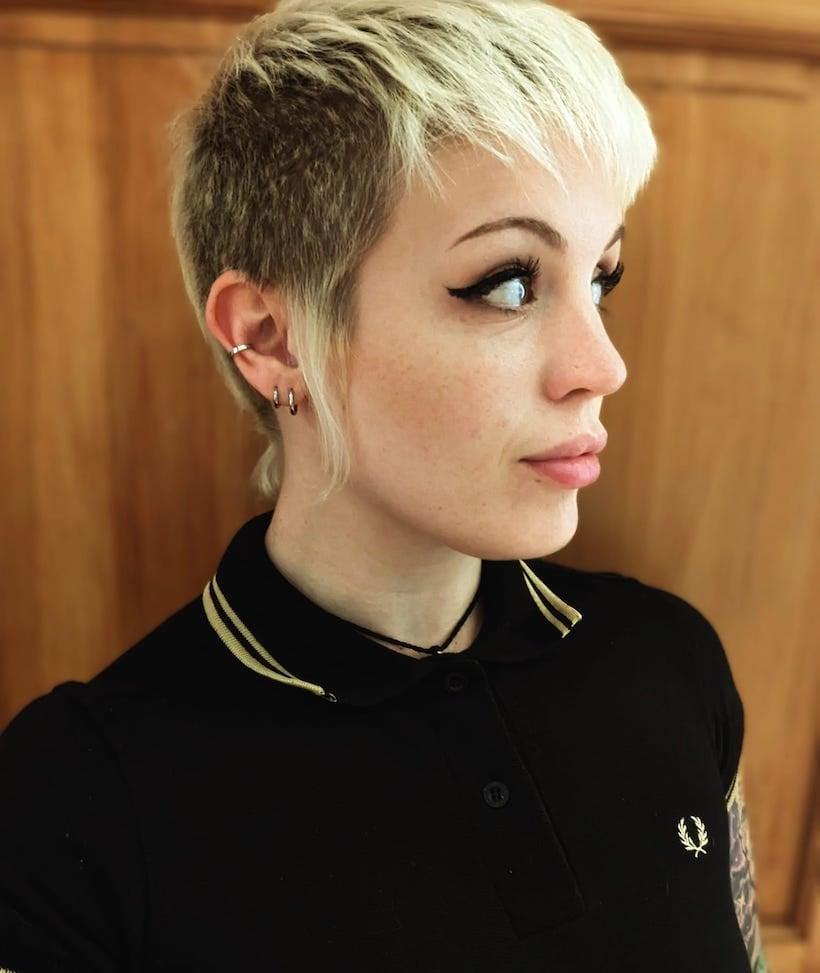





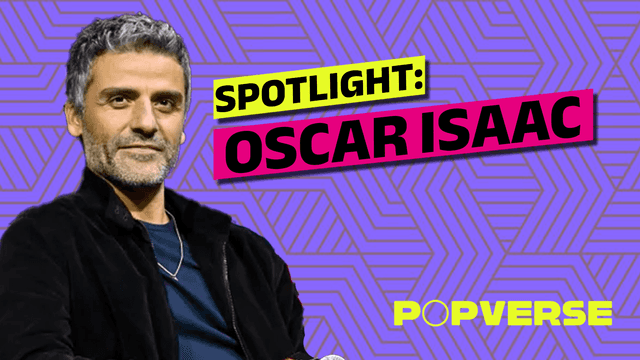
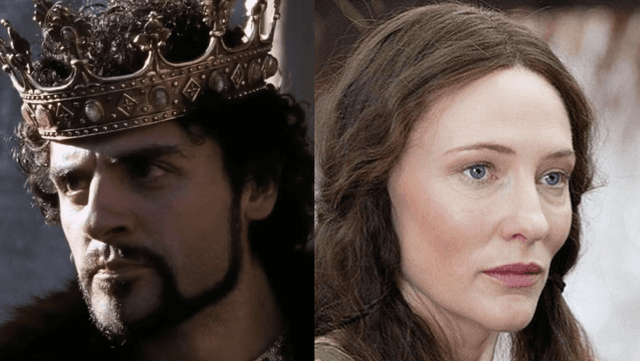







Comments
Want to join the discussion? Please activate your account first.
Visit Reedpop ID if you need to resend the confirmation email.